Mental health and addiction are intertwined in a web of convoluted, misunderstood details.
Besides being categorized as a standalone mental health issue, addiction can coexist with other conditions such as depression, anxiety, bipolar disorder, and so on.
Keep reading to learn more about the link between mental health and addiction and the possible treatment options!
What is Addiction?
Addiction refers to the continued use of substances or engagement in activities despite adverse consequences.
It is a chronic disease that affects both the mind and behavior, leading to compulsions, which sometimes prove destructive.
Though commonly associated with substance abuse like drugs or alcohol, addiction can also be seen in other activities such as gambling, gaming, shopping, and even food.
The Delicate Link Between Mental Health and Addiction
Studies have shown that there is a significant link between mental health and addiction disorders.
Self Medication
One explanation for this link is referred to as self-medication.
People who have mental disorders may resort to substances or actions as a way of alleviating their symptoms temporarily.
As they continue relying on these coping mechanisms, this could then escalate into an addiction.
Changes in Brain Chemistry
On the other hand, changes in brain chemistry that lead to mental health conditions may occur alongside developing an addiction for some individuals.
Substance abuse can change reward pathways in the brain as well as levels of neurotransmitters, thus causing depression, anxiety, or any other disorder.
The Specifics: Co-occurring Disorders
Frequently, addiction is found alongside mental health disorders like:
- Depression
- Anxiety disorders (such as generalized anxiety disorder (GAD), panic disorder, and social anxiety disorder)
- Bipolar disorder
- Post-traumatic stress disorder (PTSD)
- Obsessive-compulsive disorder (OCD)
These co-occurring disorders exacerbate the effects of addiction, making recovery much more complicated.
Breaking the Stigma: Understanding Dual Diagnosis
Dual diagnosis is a term used to describe a situation whereby an individual has both a mental illness and substance abuse disorder.
This term is often used in the context of addiction treatment, which underscores the need to handle these two issues simultaneously.
Nonetheless, there is still a significant amount of stigma associated with mental health and addiction, making it difficult for people to ask for help.
Common stigmas include:
- Believing that mental illness is a sign of weakness
- Viewing addiction as a moral failure rather than a disease
- Feeling ashamed or embarrassed to seek treatment
These stigmas can prevent individuals from seeking the necessary help and support for recovery.
However, it’s essential to understand that having a dual diagnosis is not uncommon.
In fact, research shows that nearly 50 percent of individuals with addiction also have co-occurring mental health disorders.
The person’s chances of recovery can be highly improved if they seek indications for both their addiction and any underlying mental health disorders.
The Importance of Dual Diagnosis Treatment
This specialized form of addiction treatment, referred to as a dual diagnosis program, addresses both substance abuse and mental health disorders at once.
It considers how these two conditions interact with one another and affect the overall well-being of a person.
Dual diagnosis treatment usually involves the use of therapy, medication management, along with other evidence-based techniques to effectively deal with both conditions.
How Dual Diagnosis Treatment Works
A significant part of dual diagnosis treatment includes recognizing and dealing with any mental health problems that underlie substance abuse.
This process entails a detailed evaluation and assessment by experts who determine co-occurring disorders.
When a diagnosis is made, a personalized plan is made that covers both conditions.
The treatment may include talking therapy or counseling sessions, medication supervision, accompanied by support groups as well as other ways based on the individual’s needs.
Dual diagnosis treatment aims at assisting individuals in maintaining their mental health disorders and substance abuse in a healthy approach that can be managed in the long run.
The Benefits of Dual Diagnosis Treatment
There are many advantages of dual diagnosis treatment to clients grappling with co-occurring disorders.
- Dual-diagnosis treatments address both issues simultaneously, aiding in successful and long-lasting recovery.
- Improved mental well-being and reduced relapse risk are additional benefits of dual-diagnosis treatments.
- Clients gain a better understanding of the connection between mental health and substance abuse.
- Enhanced self-awareness and coping skills are fostered through improved understanding and acceptance of illnesses.
Southern Sky Recovery Treats Co-occurring Disorders
Navigating this complicated link between mental health and addiction is our primary focus in Southern Sky Recovery.
We provide gender-specific care in a family-oriented atmosphere, offering services such as Intensive Outpatient Programs (IOP), Partial Hospitalization Programs (PHP), and Outpatient services.
Some interventions that our treatment programs have included Dialectical Behavior Therapy (DBT), Cognitive Behavioral Therapy (CBT), and Individual therapy.
Don’t let stigma hold you back from seeking help today! Contact us and start your journey of taking back control over your life!



